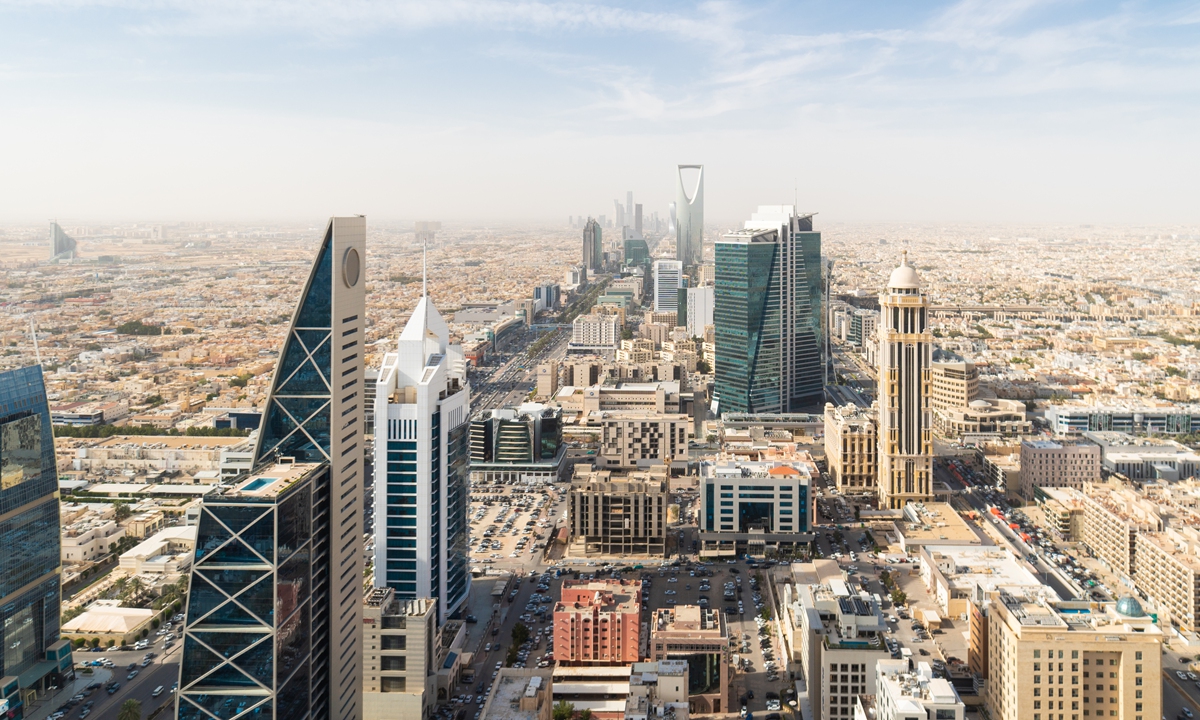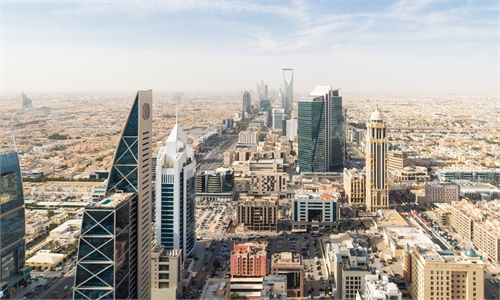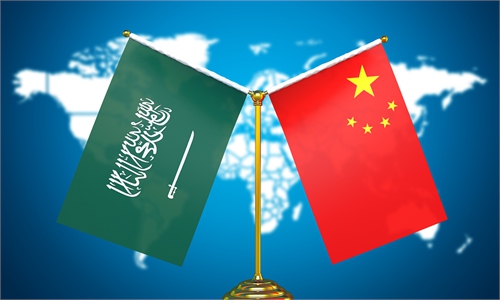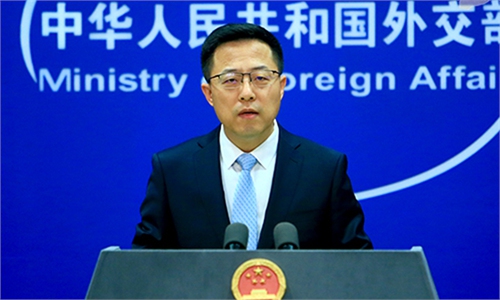First Saudi ETF tracking Hong Kong-listed equities to debut in Saudi Arabia at month-end
China, Middle East eye further cooperation in finance, green economy: experts

An aerial view of Riyadh, capital of Saudi Arabia Photo: VCG
Saudi Arabia's first exchange-traded fund (ETF) tracking equities listed in Hong Kong, the Albilad CSOP MSCI Hong Kong China Equity ETF, will debut on the Saudi Exchange on October 30, and it is expected to become the largest ETF in the Middle East, Hong Kong's CSOP Asset Management said in an article published on its official WeChat account on Thursday.
Experts noted that the move will strengthen financial sector cooperation between China and Arab countries. Thanks to deepening economic and trade cooperation between China and Arab countries, they will look for more cooperation opportunities in the green economy such as new-energy vehicles (NEVs) and photovoltaic products, they said.
The ETF is a collaborative effort between Saudi asset manager AlBilad Investment Co and CSOP Asset Management, and Middle Eastern traders will be able to invest in Hong Kong-listed companies including Chinese firms traded in the city.
According to CSOP Asset Management, as of Tuesday, the Hong Kong-listed ETF's size had exceeded HK$10 billion ($1.29 billion).
On November 29, 2023, Asia's first and the world's largest Saudi Arabia-focused exchange-traded fund went public on the Hong Kong Stock Exchange. On July 16 this year, two Saudi ETFs made a strong market debut in both the Shanghai and Shenzhen exchanges, with the size exceeding HK$10 billion, CSOP Asset Management said.
"Deepening financial ties between China and Arab countries stem from their significant internal momentum for cooperation. Arab countries, such as Saudi Arabia and the United Arab Emirates, have formulated plans for economic transformations, focusing on the development of the high-tech industry and tourism, and China has a strong competitive advantage in these areas," Niu Xinchun, executive director of the China-Arab Research Institute of Ningxia University, told the Global Times on Thursday.
Moreover, the move demonstrates the Middle East's recognition of and trust in Hong Kong's financial market, further enhancing the city's status as an international financial center and strengthening its international influence, said Wang Peng, an associate research fellow at the Beijing Academy of Social Sciences.
Niu said that the Middle East is also eyeing cooperation with China's downstream energy industries, such as refining, chemical engineering and plastics, as it hopes to expand collaboration with China in the energy sector.
Green industries including NEVs and photovoltaic products are also in the spotlight for future collaboration between China and Arab countries, Niu noted.
In July, JinkoSolar announced that its wholly owned subsidiary - JinkoSolar Middle East DMCC - had signed a contract with Renewable Energy Localization Co (RELC), the wholly owned subsidiary of the Saudi Public Investment Fund, and Vision Industries Co (VI), to establish a joint venture (JV) in Saudi Arabia to build a 10 gigawatt high-efficiency photovoltaic module project there.
In the same month, TCL Zhonghuan announced plans to build a factory in Saudi Arabia, and it will sign an agreement with the VI and RELC to set up a JV company, jointly building a crystal wafer project for photovoltaic systems with an annual output of 20 gigawatts.
Wang added that as the Middle East region possesses abundant cultural and tourism resources, both sides can jointly promote the development of the tourism industry.



